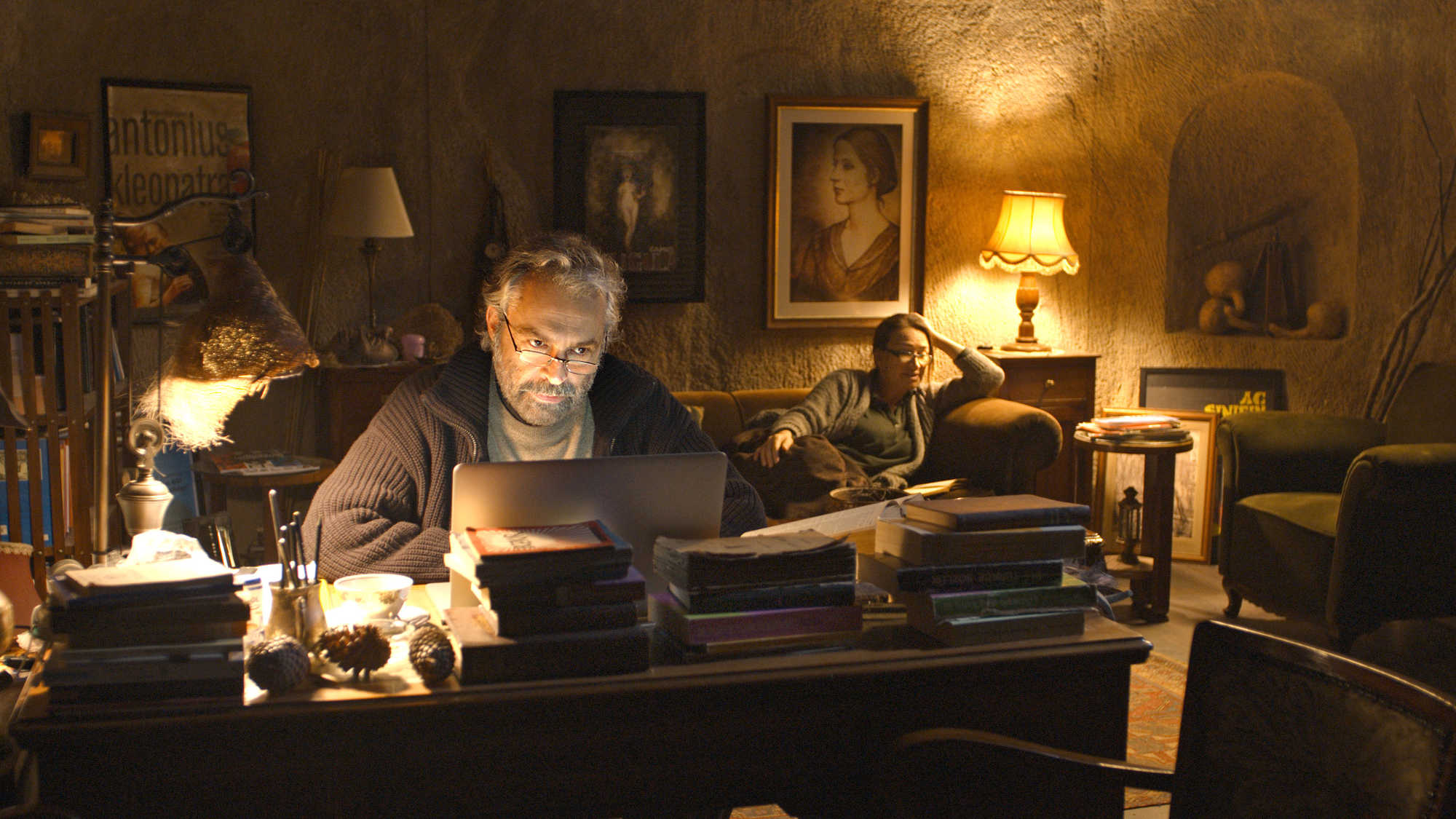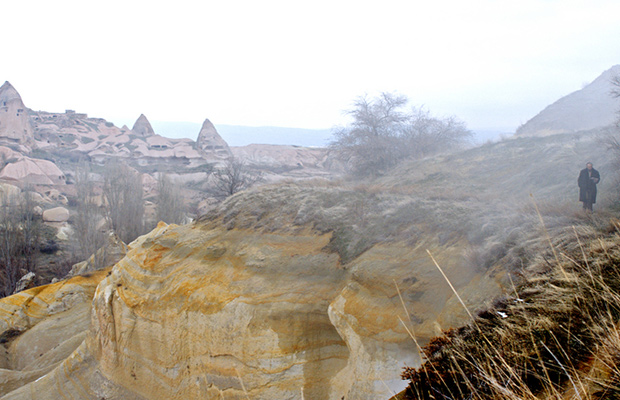I wish I had something new and exciting to
say about this year’s Cannes Palme d’Or, Winter
Sleep. It’s a long and very beautiful film that revels in the sumptuousness of the cinema.
It’s about as Shakespearean as the cinema gets in its epic form and story, but
unlike a Shakespearean play, at the movie’s end, the mise-en-scène is fully intact. Unlike a Shakespeare play where the
stage is strewn with bodies and blood as the evidence of the drama that has
unfolded before us, all of the desire, destruction, and revelation has happened
internally, behind the deep brown eyes of the characters, in the cold air
between a husband and his unhappy wife.
 |
| Nuri Bilge Ceylan, Winter Sleep, 2014 |
The most devastating moment of Winter Sleep comes when a poor drunkard,
recently returned home from prison, throws a great wad of 100 lire notes in the
fire. The protagonist, Aydin, a 60 something wealthy writer who is also filled
with arrogance and disinterest in those not his social equal, is the poor man’s
landlord. Aydin’s beautiful young wife decides that benevolence is the solution
to her husband’s arrogance and ills. In a far less shocking scene, Aydin warns
the lovely Nihal of the complexity of charitable acts and the deceit of those
who minister them. We don’t believe him anymore than she does because his
warning is delivered in anger, perhaps as a gesture to control her, perhaps
because of his jealousy of her life away from him. It’s difficult to know his
motives. But when she decides to visit the family in the village below who cannot
pay the rent, only to have her gesture thrown into the fire, her lesson, like
ours, is moral and very real. As she defies her haughty and wise but
unflinching husband, she learns a moral tale the hard way: you can’t just give
to the poor and expect everything to be better. It doesn’t work like that.
 |
Aydin and Necla discussing his writing
Nuri Bilge Ceylan, Winter Sleep, 2014
|
What I loved most about the film was the
dark, often firelit mise-en-scène of
closeups. Much of the “drama” of the
film takes place in conversations between Aydin and Nihal and his recently
divorced sister, Necla as well as the visitors to the hotel —Othello House —
that he runs in remote Anatolia. The beautiful closeups watch faces lit by fire
light and intense dark eyes allowing us to read the emotion, if not always the
thoughts and motivations of the characters. Ceylan uses a 2.35:1 aspect ratio,
and blacks out much of the background while the closeups consume every breath
of the screen. This is a daring use of cinemascope if ever there was one. The
other, most exquisite aspect of Winter
Sleep is Ceylan’s editing. He has a practice of cutting, quite boldly,
between scenes before they are finished, with a conversation acting as a sound
bridge to another scene, and a shift or pause in conversation once the spatial
transition is established.
Ceylan not only stretches the film medium,
but in its 3h15minute length, he pushses us to a different kind of film viewing. We remember, it’s a film in which very little
happens, in which the action consists of the characters slow revellation of themselves, and with
themselves their morality, their politics, their flaws, their vulnerabilities, through conversations with each other. All this talking, reflecting, being pensive isn’t exactly cinematic action. So he really asks a lot of his viewer: we have to go in, sit back and let
go to the fairy tale in a castle on a mountain —which turns out to be not such
a fairytale afterall. The drawback is that like the Chekov stories the film is
based on, there is a lot of talking, therefore a lot of reading subtitles.
Those seeing Winter Sleep subtitled
in their own language may not have this difficulty, but I missed a lot of the
gorgeous imagery because I was distracted by reading subtitles.
 |
| Nuri Bilge Ceylan, Winter Sleep, 2014 |
Ultimately, I was also taken by the brilliance of Winter Sleep’s epic reach. Like
Shakespeare and Chekov and Dostoyevsky and Voltaire that inspired the film, the
contemporary politics of Turkey are engaged as the characters struggle with the
most intimate lives. Aydin writes about religion in his weekly newspaper column
—that as his sister points out, is much more to satisfy his ego than to inform
the readers. In conversation and disagreement, the film then raises the
question of the split between religious and non-Religious Turks, the
difficulties caused by the gap between rich and poor, educated and illiterate.
 |
Nuri Bilge Ceylan, Winter Sleep, 2014
|
All said, it’s a fine winter’s tale and
worthy winner of the Palme d’Or, but I am not convinced that it is Ceylan’s
masterpiece. My favorite film of his is still the first one I saw, Uzak, a film that is more human in every
way.













